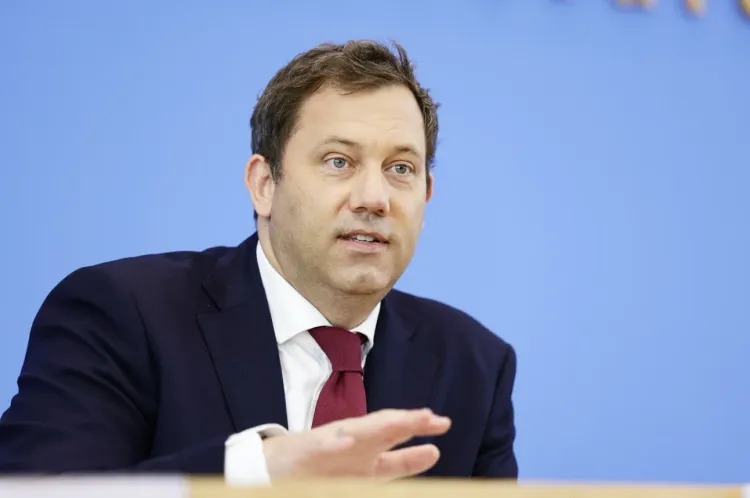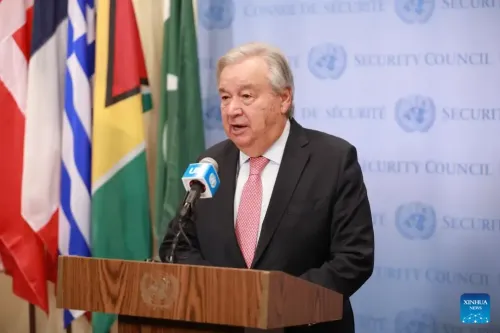What Are Germany's Plans for the 2026 Budget with Record Investments?

Synopsis
Key Takeaways
- The 2026 budget draft allocates 520.5 billion euros for infrastructure and security.
- Investment is projected to reach 126.7 billion euros next year.
- Increased spending on defense and housing is included in the draft.
- Concerns about fiscal sustainability are rising amid a projected 172 billion euro funding gap.
- Special off-budget funds are a controversial method of financing.
Berlin, July 30 (NationPress) - On Wednesday, Germany's cabinet sanctioned the federal budget draft for 2026, marking the second consecutive year of unprecedented investment as the government strives to modernize infrastructure and enhance national security.
The draft, introduced by Finance Minister Lars Klingbeil, outlines expenditures reaching 520.5 billion euros (approximately 597 billion U.S. dollars) for 2026, reflecting a 3.5 percent increase from the 2025 budget, which is pending parliamentary approval, as reported by Xinhua News Agency.
Since taking office in May, the government has prioritized structural reforms and public investment to rejuvenate Germany's economic dynamism. According to the draft, total investment is expected to soar to 126.7 billion euros next year, establishing a new record for the second consecutive year following an all-time high in 2025. Defence spending is set to increase significantly, accompanied by greater funding for transportation and housing.
"Our principal objective is to protect jobs and foster new economic vitality," Klingbeil stated. "We are investing now to ensure that Germany is more modern, equitable, and secure in the future."
Nevertheless, much of the anticipated investment will be funded through special off-budget allocations, a strategy criticized for circumventing Germany's constitutional debt limitation and misrepresenting the actual borrowing scale.
Despite the ambitious plans, concerns about long-term fiscal sustainability are escalating. The extensive financial strategy predicts a funding shortfall of 172 billion euros by 2029, approximately 30 billion euros more than Klingbeil estimated in June. This increasing deficit is primarily attributed to proposed corporate tax reductions and compensatory payments to state and local governments.
With the cabinet's endorsement secured, the draft budget now advances to the Bundestag for parliamentary discussions and subsequent approval.
Earlier in May, German Chancellor Friedrich Merz vowed to prioritize national security and economic revitalization during his inaugural address at the Bundestag. In his first significant speech as Chancellor, Merz outlined his coalition government's policy agenda, formed by the Christian Democratic Union/Christian Social Union (CDU/CSU) and the Social Democratic Party (SPD).
During this address, he emphasized that strengthening the Bundeswehr—Germany's armed forces—was a critical focus. He committed to ensuring it becomes the most powerful military force in Europe. According to the coalition agreement between the CDU/CSU and the SPD, the parties have resolved to exempt defence spending exceeding one percent of GDP from the constitutional debt brake, allowing for more flexible military funding.
Regarding the economy, Merz acknowledged that Germany is currently experiencing a recession. He pinpointed excessive bureaucracy, high energy costs, and a burdensome tax framework as significant barriers to growth. To address these obstacles, he pledged a return to economic expansion through investments and structural reforms, with a focus on enhancing competitiveness and safeguarding jobs.









